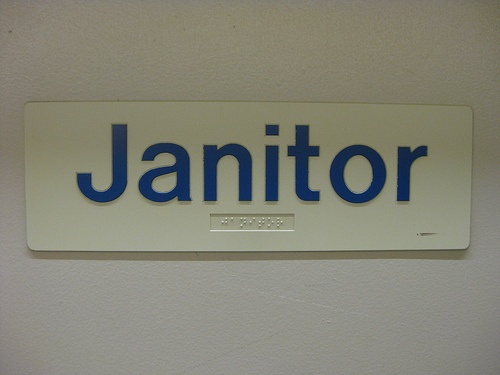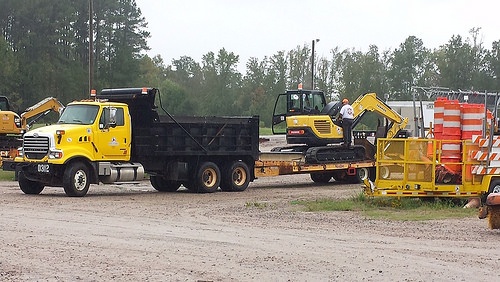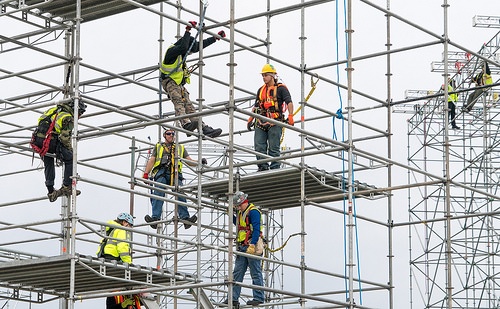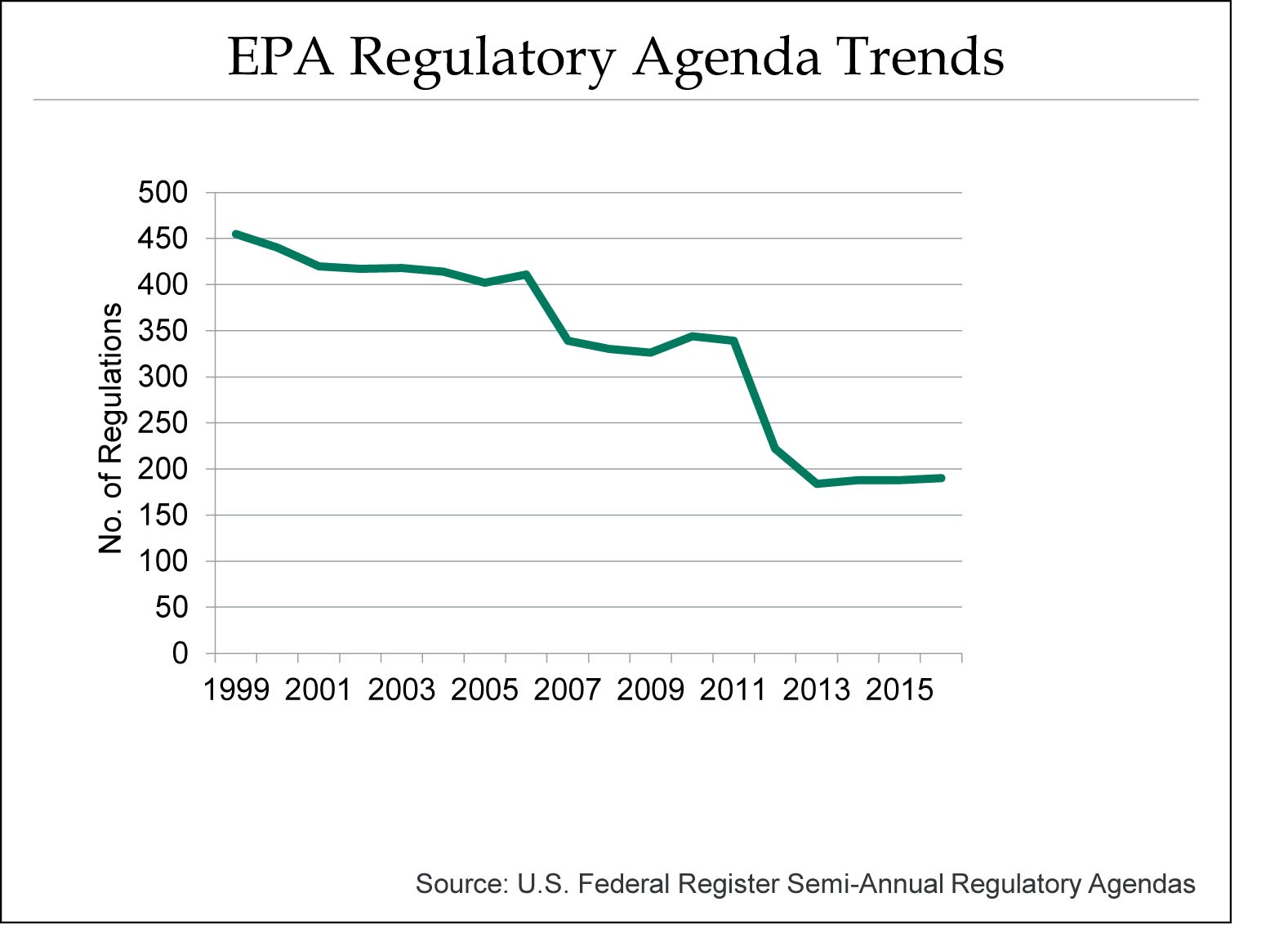What if I told you that safety wasn’t about you? That the ‘safety starts with you’ mantra no longer applies? What would you think? How would you act? Could this even be true?
Read MoreAudit, Compliance and Risk Blog
What’s In Your Janitor’s Closet? New York Seeks More Information
Posted by Jon Elliott on Tue, Aug 22, 2017
Even workplaces with very limited chemical use probably use cleaning supplies. If these supplies are bought in typical retail packaging intended for consumer use, the employer and employees may lack ready access to chemical content information beyond that on the labels. That’s because the Hazard Communication Standard (Hazcom) administered by the U.S. Occupational Safety and Health Administration (OSHA) exempts consumer products in their final form for consumer use, unless worker use is greater than that by typical consumers.
Read MoreTags: Health & Safety, OSHA, California Legislation, Environmental risks, Environmental, EHS, Hazcom
One of California’s many unique environmental, health and safety (EH&S) laws is its “Corporate Criminal Liability Act (CCLA).” CCLA provides greatly expanded potential personal criminal liabilities for violations by managers, so is often referred to as the “Be a Manager, Go to Jail” law. Enacted in 1990, CCLA draws both from occupational safety and product liability laws, to provide sweeping requirements for corporations and managers to abate or warn exposed individuals (including employees) about a broad variety of serious concealed dangers occurring in a broad variety of circumstances, including both workplaces and products. Although this law has been used by prosecutors and advocates to strike fear into the hearts of corporate managers, there have been few reported cases in its nearly three decades on the books.
Read MoreTags: Health & Safety, OSHA, California Legislation, Environmental risks, Environmental
Thinking About Occupational Hearing Protection After Better Hearing and Speech Month
Posted by Jon Elliott on Thu, Jun 22, 2017
May was Better Hearing and Speech Month, and the National Institute for Occupational Safety and Health (NIOSH reminded employers that Occupational hearing loss (OHL) is one of the most common work-related illnesses in the United States. Each year, about 22 million U.S. workers are exposed to hazardous noise levels at work. NIOSH reports that U.S. employers paid more than $1.5 million in penalties for not protecting workers from noise in 2016, and that $242 million is spent annually on workers' compensation for hearing loss disability.
Read MoreTags: Employer Best Practices, Health & Safety, OSHA, Employee Rights
Effective February 16, 2017, the Environmental Protection Agency (EPA) has issued a revised “National Pollutant Discharge Elimination System [NPDES] General Permit for Discharges from Construction Activities” (CGP).” This new 2017 CGP replaces EPA’s 2012 CGP, updating requirements for entities with construction sites that disturb more than 1 acre of land – readers should keep in mind that this covers individual projects, so that even if your organization isn’t a construction company or developer, a big expansion at your facility may be covered.
Read MoreTags: Health & Safety, Environmental risks, Environmental, EPA, Stormwater
California Adopts Workplace Violence Prevention Requirements For Health Care Facilities
Posted by Jon Elliott on Thu, Feb 09, 2017
Health care and social service workers suffer workplace violence at much higher rates than in most other sectors, because of the higher risk from their patients and clients. In response, worker protection laws and regulations have begun to require workplace violence prevention in these sectors. The California Occupational Safety and Health Standards Board (OSHSB) just adopted a new regulation, implementing 2014 legislation that expands state requirements for hospital security plans, to include specified workplace violence prevention programs. Compliance begins in phases during 2017-2018, and will be administered by the Division of Occupational Safety and Health (Cal/OSHA)).
Read MoreTags: Employer Best Practices, Health & Safety, OSHA, Employee Rights, Workplace violence
OSHA Revises Walking, Climbing and Fall Protection Standards – Part 2 (Protective Systems and Training)
Posted by Jon Elliott on Tue, Jan 31, 2017
The Occupational Safety and Health Administration (OSHA) has issued massive revisions to its regulations requiring most employers (“General Industry”, in OSHA parlance), to protect employees from slip and fall hazards in most workplace contexts, including:
Read MoreTags: Employer Best Practices, Health & Safety, OSHA, Employee Rights, Environmental risks
OSHA Revises Walking, Climbing and Fall Protection Standards – Part I (Surfaces and Pathways Between Levels)
Posted by Jon Elliott on Mon, Jan 23, 2017
The Occupational Safety and Health Administration (OSHA) has issued massive revisions to its regulations requiring most employers (“General Industry”, in OSHA parlance), to protect employees from slip and fall hazards in most workplace contexts, including:
Read MoreTags: Employer Best Practices, Health & Safety, OSHA, Employee Rights
U.S. Environmental Regulatory Trends at the Close of the Obama Administration
Posted by Larry Cahill on Thu, Jan 19, 2017
“The care of human life and happiness, and not their destruction, is the first and only object of good government.”
Tags: Business & Legal, Health & Safety, Environmental risks, Environmental, EPA
The US Green Building Council’s New LEED v4 Rating System
Posted by Rebecca Luman on Thu, Dec 15, 2016
The US Green Building Council (USGBC), founded in 1993, is a consensus-based nonprofit organization with more than 12,000 national members representing the entire building industry. USGBC plays an important role in providing leadership and integration for the building industry in driving sustainable building.
Read MoreTags: Health & Safety, Environmental risks, Environmental, EHS, RCRA










